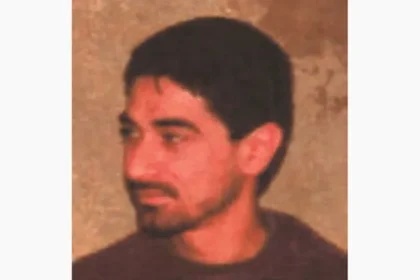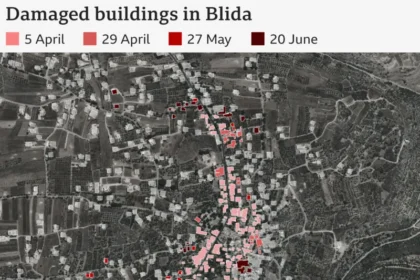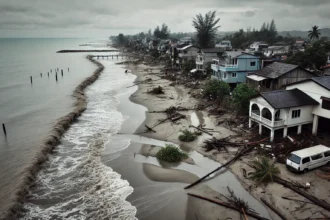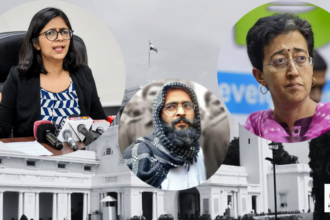In a significant escalation of tensions between Israel and Hezbollah, Israel launched a targeted airstrike in the southern suburbs of Beirut, Lebanon, on September 20, 2024. This attack, part of Israel’s ongoing campaign against Hezbollah, aimed at killing Ibrahim Aqil, a senior commander of Hezbollah’s elite Radwan Force. Aqil’s death, alongside at least 14 other casualties, marks a turning point in the near-daily clashes along the Israel-Lebanon border. This incident not only increases regional tensions but also raises concerns of a potential all-out war in the Middle East.
Context: The Long-standing Israel-Hezbollah Conflict
The conflict between Israel and Hezbollah is deeply rooted in decades of political and military struggle. Hezbollah, a powerful Shiite militia and political entity in Lebanon, has consistently opposed Israeli presence and actions in the region. The two sides have engaged in multiple wars and skirmishes, the most notable being the 2006 Israel-Hezbollah War, which devastated parts of Lebanon and caused significant casualties on both sides.
Since then, the Lebanon-Israel border has been a flashpoint for tensions, with sporadic clashes over the years. However, the situation has escalated significantly over the past year, particularly after the Gaza war reignited regional hostilities. Hezbollah has been a long-time ally of Hamas, and the group has carried out several retaliatory attacks on Israel, fueling the ongoing conflict.

The September 20 Airstrike: Targeting Ibrahim Aqil
The Israeli airstrike on September 20, 2024, targeted the Dahiya district in southern Beirut, a Hezbollah stronghold. Ibrahim Aqil, a senior commander of Hezbollah’s Radwan Force, was killed in the strike. Aqil had been a prominent figure within Hezbollah’s military operations and had been involved in several key operations, including the 1983 bombing of the U.S. Marine barracks in Beirut, which killed over 300 people. The United States had placed a $7 million bounty on his head for his role in various terrorist activities.
Lebanon’s Health Ministry confirmed that the airstrike killed 14 people and wounded 66 others. The strike came just hours after Hezbollah fired 140 rockets into northern Israel, marking one of the most intense bombardments in recent months. The Israeli Defense Forces (IDF) stated that the airstrike was part of a “new phase of war”, and they would continue to target Hezbollah leaders to ensure the safety of Israel’s northern communities.
Why Target Ibrahim Aqil?
Ibrahim Aqil was a key figure in Hezbollah’s military strategy, particularly in southern Lebanon. He was a member of Hezbollah’s Jihad Council, the organization’s highest military body. Aqil also played a leading role in the Radwan Force, an elite unit within Hezbollah tasked with conducting ground operations against Israel. According to Israeli sources, Aqil had been planning a series of attacks against Israeli military targets and civilians along the Israel-Lebanon border, and his elimination was a priority for Israeli defense officials.
The airstrike followed months of rising tensions along the border, where Hezbollah and Israel had engaged in sporadic clashes. Most notably, Israel had carried out a series of covert operations earlier in the week, destroying Hezbollah’s communications systems, which left the group reeling. In response, Hezbollah launched multiple rocket attacks on Israel, culminating in the events of September 20.
Hezbollah’s Retaliation and Escalation
In response to Aqil’s assassination, Hezbollah launched a wave of attacks on Israeli military positions in northern Israel. These retaliatory strikes targeted several military bases and outposts, leading to heightened tensions along the border. Hezbollah’s leader, Hassan Nasrallah, vowed that the group would continue its fight against Israel and seek revenge for Aqil’s death. Nasrallah has frequently warned that any Israeli actions against Hezbollah would be met with a fierce response, further stoking fears of a broader conflict.
Despite the severity of the situation, both Israel and Hezbollah have shown restraint in avoiding an all-out war thus far. However, as tensions rise, international observers fear that the situation could spiral into a larger regional conflict, involving other actors such as Iran and Syria, both of whom are key allies of Hezbollah.
International Reactions: Calls for Restraint
The international community has expressed concern over the escalating conflict between Israel and Hezbollah. United Nations Secretary-General António Guterres called for both sides to exercise maximum restraint and prevent further loss of life. The United States, while supportive of Israel’s right to defend itself, has urged caution, fearing that the conflict could spill over into neighboring countries, creating a larger regional crisis.
Iran, a long-time backer of Hezbollah, condemned the Israeli airstrike, accusing Israel of deliberately escalating the situation in the region. Iranian officials warned that Israel’s actions could provoke a strong reaction from Hezbollah and other allied groups in the Middle East.
The Broader Impact: Risk of a Regional Conflict
The death of Ibrahim Aqil marks a significant moment in the ongoing Israel-Hezbollah conflict. While Israel has successfully eliminated a key Hezbollah figure, the broader implications of the airstrike remain uncertain. Hezbollah’s retaliatory attacks and the increasing hostilities along the Israel-Lebanon border raise concerns that the conflict could escalate into a full-scale war.
The situation is further complicated by the ongoing Israel-Hamas war in Gaza. As Israel diverts resources to deal with the Hezbollah threat in the north, it risks stretching its military capabilities thin, which could leave it vulnerable to further attacks from Hamas and other regional actors.

Conclusion: A Tense Period for the Middle East
As the Israel-Hezbollah conflict intensifies, the risk of a broader regional war looms large. While both sides have shown restraint in the past, the events of September 20 have pushed the situation closer to the brink. The assassination of Ibrahim Aqil has dealt a significant blow to Hezbollah, but it also raises the stakes for Israel, which now faces an emboldened enemy seeking revenge.
The coming weeks will be critical in determining whether the conflict escalates or if diplomacy can prevail. For now, both sides remain on high alert, with the people of northern Israel and southern Lebanon caught in the crossfire of an increasingly dangerous conflict.









